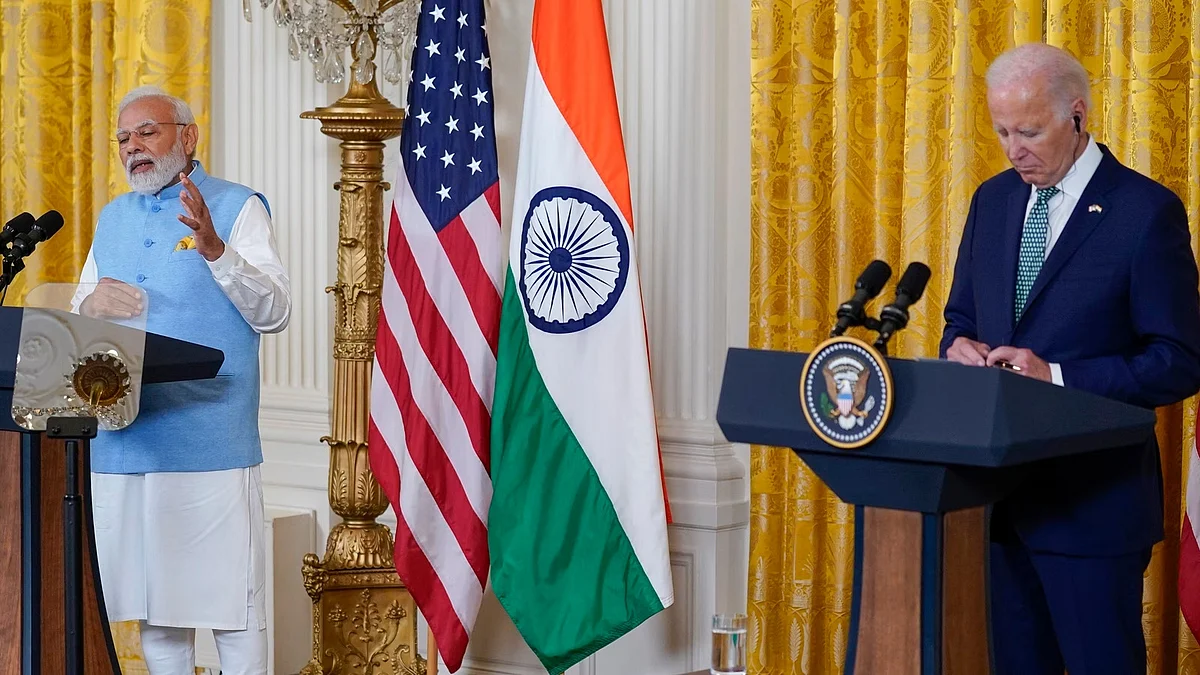Does Modi understand Biden's plans for the Indo-Pacific?
We should be wary, for the renewed tension between the US and China is not in India’s best interest

The general election in India has entered an uncertain phase and is less predictable than it was even a month back.
The Modi government, as is known, expects to return to power for the third consecutive term with an overwhelming majority, though BJP leaders have admitted that ‘ab ki baar 400 paar’ was meant to motivate party workers and should not be taken literally.
At the same time, several commentators and the opposition parties seem to be equally convinced that the ruling party is heading towards a decisive defeat. They believe that the government is on its way out and its tally may well come down to 200 or so, well short of the majority mark of 272 seats in the Lok Sabha, when results are declared on 4 June.
Even as pundits and politicians keep their fingers crossed, US policymakers and their counterparts in India are staying the course, either pretending that the bonhomie between the two countries will continue because of the common concerns and interests, or because they believe that Narendra Modi will come back to power and so further strengthening the relationship is worthwhile.
It seems the US state department does not feel that the Donald Trump challenge is a serious one. Nor does the state apparatus in India believe (or at least, it does not display doubt) that there is any major electoral challenge to Narendra Modi.
So, both governments went ahead and agreed to a visit to India by the US national security advisor, Jake Sullivan, and a meeting with his counterpart in India, Ajit Doval.
However, the visit, which was scheduled for 17 April, was suddenly postponed, ostensibly because of the grave situation in West Asia and the deepening of the Russia–Ukraine conflict.
The Biden administration considers India a close ally in the Indo-Pacific to counter-balance China’s ambitions in the region. The US has invested hugely in Narendra Modi, personally and politically, believing that he will be the force in the region which will protect American interests.
The American establishment is obsessed with the rising Chinese influence and is going all out to contain its threat.
Only last week, US president Joe Biden hosted Japanese prime minister Fumio Kishida and held what is believed to be a crucial Oval Office meeting. The agenda was, of course, the consolidation of strategic partnership in the Indo-Pacific. A wide range of critical sectors for joint action were discussed, including the plan to establish a “military–industrial council”, which will work out co-production of defence weapons and also items related to integrating anti-missile defence systems between the US, Australia and Japan.
India must understand the American game and not get trapped in the Sino-American power play.
The concept of a ‘free and open Indo-Pacific region’, as promoted by the US, is not really aimed at creating conditions for sustainable development of the region's economies. Playing along with the US in implementing this concept is extremely dangerous for India because of its obvious anti-Chinese orientation.
Indeed, India should behave as the leader of the global south and not as a lackey.
The US-promoted initiative of the FOIP (free and open Indo-Pacific) is particularly counterproductive for the countries of the global south, because it will impose an obligation on countries in the South to support the anti-Chinese agenda of the United States.
Washington’s activities—through the creation of alliances that the US controls in unequal partnerships—cannot lead to stabilisation of the situation.
On the contrary, they force China to take retaliatory steps including military initiatives. They can only lead to the development and proliferation of a network of Chinese naval bases. That, in turn, will add to India’s national security risks, not reduce them.
Thankfully, Indo-Russian relations have been mutually beneficial so far. If India takes the initiative towards more comprehensive cooperation with Russia, particularly in the energy sector and with preferential prices for hydrocarbons, Russia will be able to act as a mediator in the dialogue between New Delhi and Beijing. It will also help bring down the tension between India and China on the Line of Actual Control.
***
India is, indeed, the largest economy in the region as far as its size is concerned, notwithstanding huge internal problems of poverty, underdevelopment and considerable backwardness and inequality.
Recognising India’s uneven development, the US is offering some technological systems. India’s foreign secretary Vinay Kwatra met the US deputy secretary of defense Kathleen Hicks last week (13 April) to discuss the possibility of bilateral military engagements and technological cooperation.
Overall, India must conduct international relations from a position of strength, as a sovereign and independent nation.
We must not succumb to subtle or not-so-subtle pressures exerted by the US, which is perusing a narrow and irrational objective of both confronting and containing China.
Kumar Ketkar is an Indian writer, journalist and outgoing member of the Rajya Sabha
Follow us on: Facebook, Twitter, Google News, Instagram
Join our official telegram channel (@nationalherald) and stay updated with the latest headlines